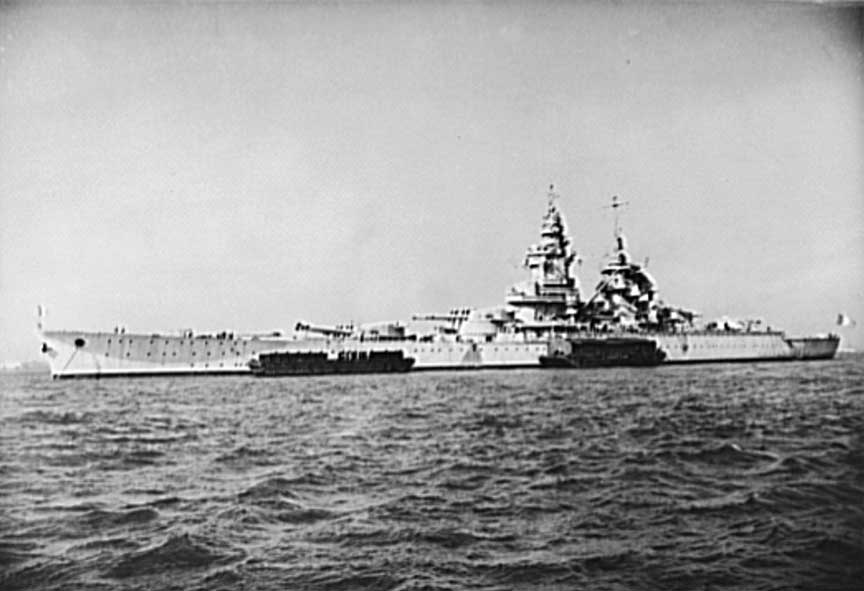July 1-10 1940 Operation Catapult

Richelieu
The British attacked the French Fleet at Mers-el Kebir when they failed to agree immediately to join the British. 1,300 French sailors were killed. French ships in Plymouth were seized and the French ships in Alexandria surrendered.
Upon the French surrender, the British government expressed apprehension regarding the potential capture of the French navy by the German forces, which could significantly enhance their naval capabilities. Despite its inferiority to the British navy, the French fleet possessed a substantial number of modern warships. The initial surrender terms stipulated that the navy primarily stationed in North African ports should return to France for disarming, although the Germans had consented to the disarming process taking place in North Africa. Furthermore, the French naval commander had issued specific directives prohibiting the ships from falling into German hands and ordering them to be scuttled should that be the inevitable outcome.
The French navy was dispersed into three distinct locations: a portion in Alexandria, Egypt, where it had been part of the British Eastern Mediterranean squadron; a group of ships at the British base in Plymouth; and a substantial squadron comprising two battle cruisers, two battleships, an aircraft carrier, six light cruisers, and numerous destroyers and auxiliary vessels.
On June 27, 1940, during a meeting of the British government, the decision was made under the strong influence of Winston Churchill to take a preemptive action against the French ships to ensure their capture by the Germans.
On July 3rd, the British unexpectedly captured the French fleet in Plymouth without resorting to violence. A single French sailor lost his life due to a misunderstanding. On the same day, Captain CS Holland dispatched a message to the French commander, Admiral Gensoul, at Mers-el Kebir, presenting the French fleet with three options: 1) Join the British navy in the ongoing conflict against the German forces; 2) Sail to British ports with reduced crews; or 3) Sail under British escort to the French West Indies, where the vessels would be disarmed or surrendered to the United States. Failure to receive a favorable response within six hours would necessitate British intervention.
The French responded with a counteroffer to disarm the ships themselves, but this proposal arrived too late. Consequently, the British ships opened fire, causing significant damage to a battle cruiser, two battleships, and a destroyer. The incident resulted in the loss of 1,300 French sailors. A few French vessels managed to escape to Toulon.
Three days later, the French ships in Alexandria accepted the British terms of semi-surrender. This left the battleships Richelieu and Jean Bart in Dakar and Casablanca. British torpedo boats subsequently attacked both vessels, rendering them out of commission for an extended period. When the Germans attempted to seize French ships in Toulon, the French promptly scuttled them.
 >
>